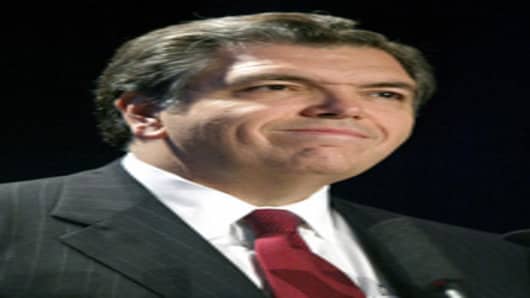Pandit, who like Thain has been mentioned as a candidate for the job, is concerned that he would not get a shot at CEO if Thain were selected because the two men are roughly the same age, sources said.
Meanwhile, the US Securities and Exchange Commission is reviewing Citi's accounting for irregularities among a type of funds known as structured investment vehicles (SIVs).
Citi Worries Spark Market Selloff
The emergency meeting came after analysts raised concerns about the banking giant's financial health this week, triggering a selloff in banking and brokerage stocks.
Citi's audit committee also met Sunday, in advance of the emergency board meeting.
A spokesman for Citigroup on Friday declined comment about the content of Sunday's meeting, but the bank's stock rose in after-hour trading. Shares were off 2.6 percent in premarket trading Monday.
Prince has already been under fire for huge write-downs, declining profit and evaporating shareholder value. The analyst comments this week heightened worries about the bank and raised questions about Prince's future as CEO.
Citigroup's stock first got hammered on Thursday after Whitney said that subprime-related losses could force the bank to scramble for capital. Citigroup shares have fallen 32 percent this year, and 17 percent since Prince became chief executive in October 2003. The shares rose early Monday in their Tokyo market debut.
"We believe over (the) near term, Citigroup will need to raise over $30 billion in capital through either asset sales, a dividend cut, a capital raise, or combination thereof," Whitney wrote.
Downgrade Hits Stock
Her downgrade of Citigroup to "sector underperformer" from "sector performer" spurred a decline of as much as 9 percent in the banks shares, sending it to its lowest level since May 2003, five months before Prince took over.


